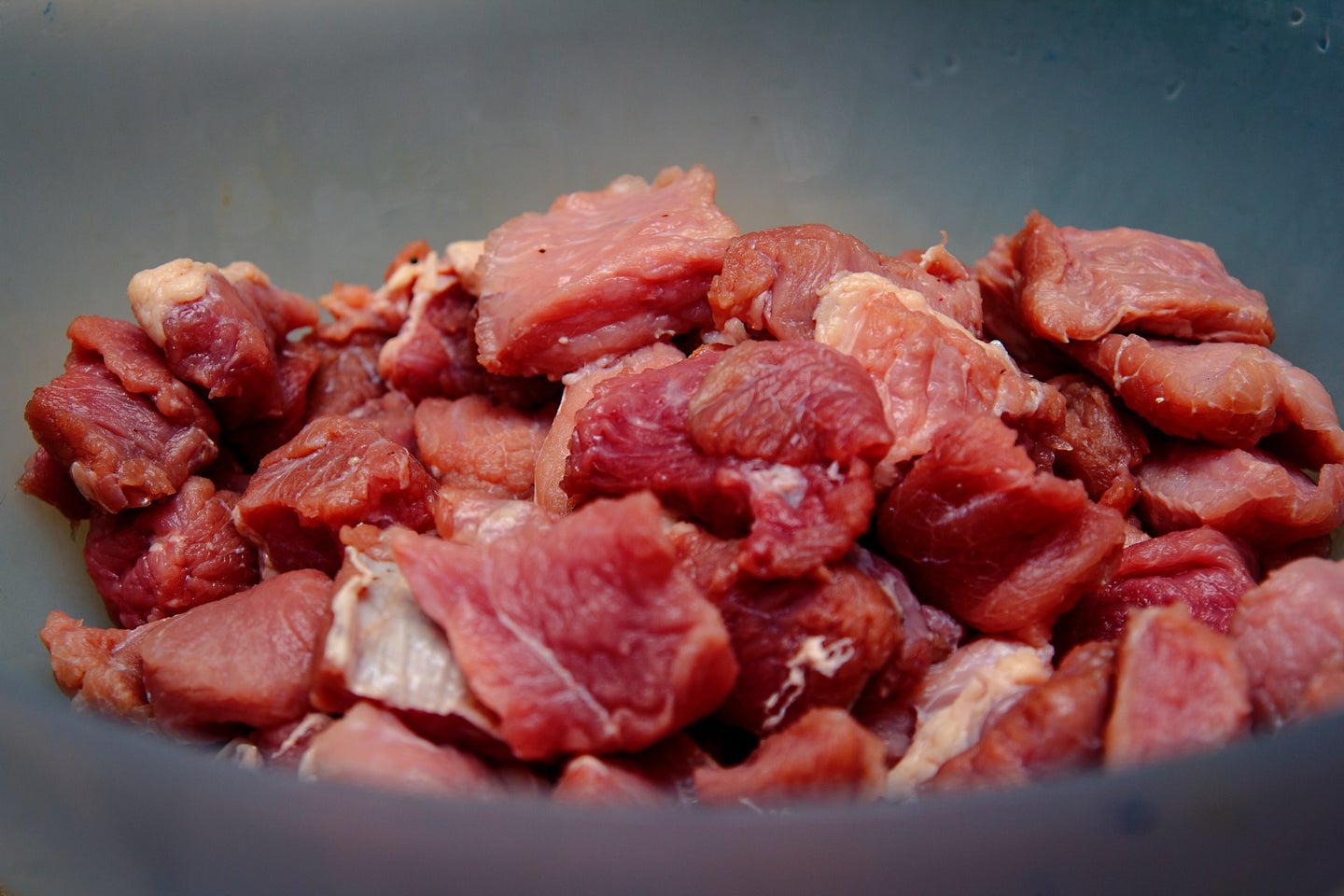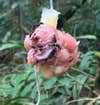What’s sweeter than honey to these bees? Rotting meat.
Special germs in their guts help the bees digest flesh.

Bees are essentially vegetarian wasps. Around a hundred million years ago, we know, the common ancestor of all modern bees was a hunter. But over the last 80 million years, bees have become vegetarians. Most get everything they need from flowers: They sip nectar to make honey, lick up floral oils, and pack protein-rich pollen into built-in pouches on their legs.
But there are exceptions to every rule. Vulture bees, a trio of stingless species in Costa Rica, never touch buds or blossoms. Instead, they get sugar from fruit and “extrafloral nectaries”—drippy nodules on the stems and leaves of some plants.
Vulture bees still need protein, though, and they get it from somewhere else entirely: rotting meat. But putrid flesh poses a few challenges not found in poppies or marigolds. Corpses are full of microbes locked in a territorial battle for the remains. “It’s microbes fighting against other microbes that produce a lot of the toxins that we associate with dead bodies,” says Jessica Maccaro, a PhD student in entomology at the University of California, Riverside. “It’s just microbial warfare.” Vulture bees are able to digest that mess with the help of acid-loving microbes in their guts, according to a new survey of carnivorous bees published in microbiology journal mBio.
Although they can be lured in with hunks of raw chicken, vulture bees are otherwise a lot like honeybees. They live in large, honey-producing colonies, (which they defend by “immediately biting your head,” Maccaro says) and have systems of preserving the meat within the hive. “If you think about bringing a dead body to your colony, that sounds like a recipe for a pandemic,” Maccaro says. “So they store the meat in these special pots, and they wait 14 days,” until the meat is “cured,” like gravlax. Then, they feed it to their young, who need the protein to grow.
They even repurpose the leg pouches that honeybees use to carry pollen. “They [have] little chicken baskets,” study author Quinn McFredrick, an entomologist at the University of California, Riverside, said in a press release.
The researchers also had some surprise meat lovers turn up at their experimental chicken traps. Three other species of bee, all previously thought to be vegetarian, turned out to be interested in meat when it was on offer. That shouldn’t be such a surprise, since plenty of animals have more flexible palates than we often imagine. (See: a giant tortoise hunting a tern, and a pelican eating a pigeon.) Bumblebees have been recorded harvesting meat as far back as the 1700s.
Like us, all bees rely heavily on the microbial partners in their guts to survive. Vegetarian bees share the same five core species, which chop up certain sugars and pollen byproducts that would otherwise be toxic to the insects.
The meat eaters play with an entirely different deck of microbes. Vulture bees were full of Lactobacillus strains—the type of bacteria that’s used to ferment sour beer, sourdough, and pickles—while the omnivores had the most diverse guts, with a mixture of standard-issue bacteria and some unusual strains.
Similar settlements have been found in other scavengers. Vultures have ultra-acidic stomachs that are full of the same bacteria that live on rotting carcasses. It appears that the combination of bone-melting acidity and hungry helpers allows them to ingest things like botulism toxins or anthrax that would kill many other animals.

Unlike vultures, however, vulture bees don’t carry so many bacteria from rotting meat itself. Instead, their gut bacteria appear to be a combination of ancestral species, and new species that are often found on plants.
The team’s future work will unravel how those species actually contribute to digestion. But right now, they believe that the bacteria may help create the proper conditions for breaking down carrion.
“We hypothesize that the bees are using those acid-producing bacteria to acidify their gut,” Maccaro says. Vultures, she points out, have genes that allow them to produce lots of stomach acid on their own. The bees might not be able to do that, and so they’ve formed a relationship with bacteria that can. There’s a precedent in bumblebees. “They get these pathogens which infect them through their gut,” Maccaro says. “So they have all these Lactobacillus in there that will acidify the gut—and that literally pickle the pathogen.”
